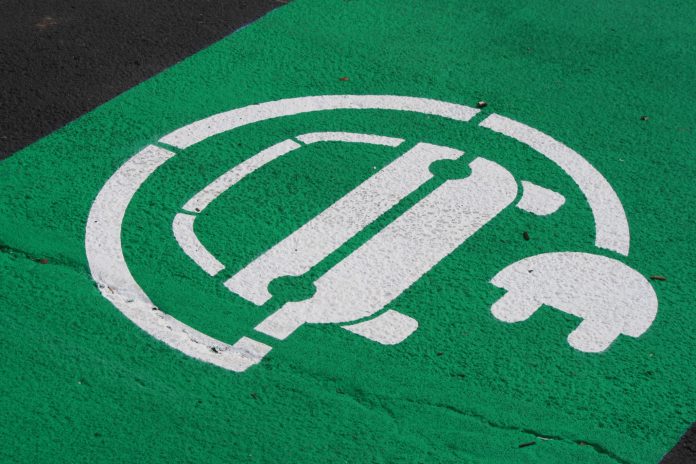The European Parliament has endorsed committee proposals for binding EU-level targets of a 35% improvement in energy efficiency, a minimum 35% share of energy from renewable sources in gross final consumption of energy, and a 12% share of energy from renewable sources in transport. And all this by 2030.
According to a European Parliament press release, MEPs voted in favour of a minimum 35% binding EU target and indicative national ones.
This target should be considered on the basis of the projected energy consumption in 2030 according to the PRIMES model (simulating the energy consumption and the energy supply system in the EU).
“Parliament was able to achieve a broad consensus for significantly higher 2030 targets,” said Jose Blanco Lopez (S&D, ES), rapporteur for renewables. “We also managed to reinforce self-consumption as a right, to bring security and certainty to investors, to raise the ambition for decarbonising the transport sector, as well as the heating and cooling sectors. Decarbonisation is not a drag on economic growth. On the contrary, it is the driver of competitiveness, economic activity and employment.”
Also, MEPs agreed that 90% fuel stations along the roads of the Trans-European Networks should be equipped with high power recharging points for electric vehicles by 2022.
Michele Rivasi (Greens/EFA, FR), co-rapporteur for governance, said: “The European Parliament has taken a historic, compliant and consistent position with the EU’s climate commitments. This is the first time that European legislation has developed, in particular, an EU 35% renewable energy target and a 35% energy efficiency target for 2030, a methane strategy, and obligations to fight against energy poverty. This policy will help develop genuine energy independence, create jobs and secure investments.”
“Energy efficiency is one of the key dimensions of the EU´s energy union strategy. An ambitious policy in this area will contribute to achieving both our climate and energy goals as well as to increasing our competitiveness. It is also one of the best ways how to fight energy poverty in Europe,” said Miroslav Poche (S&D, CZ), rapporteur for energy efficiency.
According to S&D vice-president for sustainability, Kathleen Van Brempt MEP, the EU currently imports more than half of the energy it consumes, and the bloc pays €1bn every day to countries outside of the EU.
“In the meantime, we are wasting much of our own energetic resources,” she said. “Where the increase of labour productivity was the driver of economic growth over the past century, the ‘energy productivity revolution’ must become the driver of economic progress and prosperity in the 21st century.”
The rapporteur for renewable energy, S&D MEP José Blanco, added: “If Europe wants to fulfil its Paris commitments, to fight climate change and to lead the energy transition, we need to do more. The Parliament was able to achieve a broad consensus for a significantly higher 2030 target raising it to 35%.”
According to the rapporteur for energy efficiency, S&D MEP Miroslav Poche, the European Parliament has substantially increased the ambition for energy savings. “We have also managed to close most of the loopholes that slowed down the progress under the existing legislation, such as including the transport sector and pushing member states to replace those measures that do not deliver savings.”
In a similar vein, the Liberal and Democrat (ALDE) MEPs welcomed the adoption of tighter targets for energy efficiency and renewable energy by 2030.
“ALDE played a key role in forging a progressive compromise on a renewable energy target,” said MEP Fredrick Federley. “I am delighted MEPs have aimed high – now we have to work hard to ensure this ambition is delivered in the negotiations ahead of us. Europe is falling behind global leaders on renewable energy – it’s time for an EU fight back!”
However, the European United Left – Nordic Green Left (GUE/NGL) MEPs complained the final texts put before them had been watered down by the bigger political groups. GUE/NGL shadows were displeased with the final versions put before them after months of arduous compromises and debates at committee level.
For the Renewables report, GUE/NGL MEP Paloma López chose to abstain as the text excluded provisions for binding national targets in the final text. “We have abstained on the Renewables vote because even though it is an improvement on the Commission’s original proposal, it does not include binding national targets – a key matter that we believe could jeopardise the Paris climate change agreements.”
“Without these binding targets, it is going to be very difficult to even reach the 35% global target set by the Parliament in its proposal,” warned Lobepz.
Also reacting to the vote, GUE/NGL MEP Xabier Benito said: “We regret that with this Clean Energy Package, the EU stops in midstream. It includes positive points but much more can be done. The EPP tried repeatedly to reduce and weaken the objectives and unfortunately, the socialists (S&D) and liberals (ALDE) accepted them rather than finding alternative majorities. It truly is a lost opportunity for combating climate change.”

